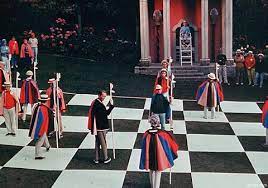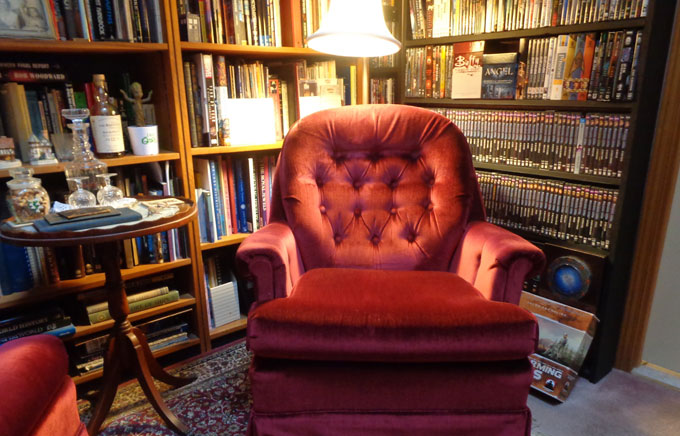
Number Six (Patrick McGoohan) is persuaded to participate, dressed as the White Queen’s Pawn, in a giant lawn chess game. A rook, Number 58 (Ronald Radd) is taken to the hospital for evaluation. Afterwards, Number Six talks with the chess master, Number Fourteen, who tells him that one can tell a guardian from a prisoner by the moves they make and their air of authority.
Number Six is invited to visit the hospital to see Number 58, and he witnesses him being subjected to Pavlovian mind-control. The woman who played the Queen, Number Eight (Rosalie Crutchly), is subjected to hypnosis to make her fall in love with Six and report his whereabouts. He avoids her but looks for an alliance with several other Villagers he thinks are prisoners, not guardians. The group make a two-way radio out of stolen electronic parts and try to hail a passing ship with a Mayday call, pretending to be a crashing airplane. Unfortunately, Number 58 takes Number Six’s air of authority to mean he is a guardian, and fearing that he is being tested, turns him in to Number Two, (Peter Wyngarde).
Originally, the episode was to be called The Queen’s Pawn, referring to Number Six’s service to Her Majesty. The chess game was a real part of the annual convention at the Portmeirion resort. The piece that Number Six played in the game was that played by Alice in Through the Looking Glass. Peter Wyngarde (Number Two) appeared on British TV in Doctor Who, I Spy, the Saint, and Avengers, and in The Innocents (1961) and Flash Gordon (1980). Mind-control in the Prisoner Series was based on real mind-control techniques that were part of documented experiments like the Asch Conformity Experiments, the Milgram Experiment, and the Stanford Prison Experiments. Other mind experiments were performed by the CIA during the Cold War at McGill University in Montreal, in which people were dosed with LSD without their knowledge and given electric shocks. Many never recovered.
